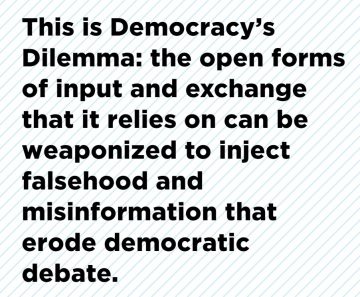Henry Farrell and Bruce Schneier in the Boston Review:
 The Internet was going to set us all free. At least, that is what U.S. policy makers, pundits, and scholars believed in the 2000s. The Internet would undermine authoritarian rulers by reducing the government’s stranglehold on debate, helping oppressed people realize how much they all hated their government, and simply making it easier and cheaper to organize protests.
The Internet was going to set us all free. At least, that is what U.S. policy makers, pundits, and scholars believed in the 2000s. The Internet would undermine authoritarian rulers by reducing the government’s stranglehold on debate, helping oppressed people realize how much they all hated their government, and simply making it easier and cheaper to organize protests.
Today, we live in darker times. Authoritarians are using these same technologies to bolster their rule. Even worse, the Internet seems to be undermining democracy by allowing targeted disinformation, turning public debate into a petri dish for bots and propagandists, and spreading general despair. A new consensus is emerging that democracy is less a resilient political system than a free-fire zone in a broader information war.
This despairing, technologically determinist response is premature. The Arab Spring wasn’t the twilight of dictatorship, yes, but today isn’t the twilight of democracy, either. Still, we agree that to the extent democracy has revealed systemic weaknesses, we should be working overtime to repair them.
More here.
